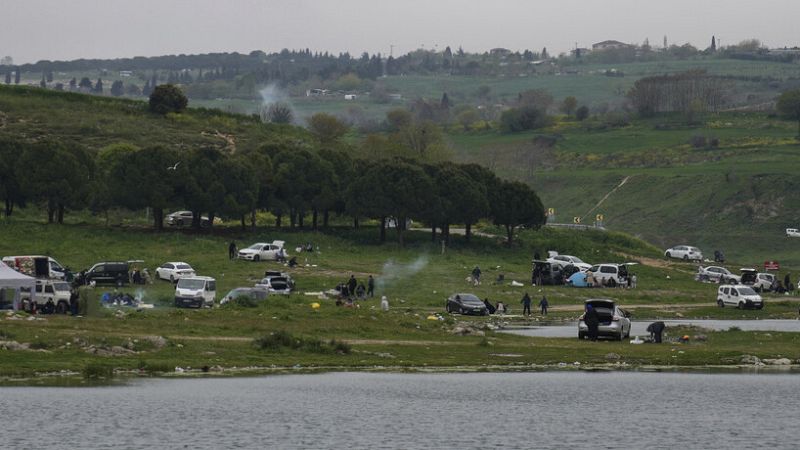A preliminary measurement indicated that an earthquake with a magnitude of 6.2 jolted Istanbul along with several adjacent cities and regions in northwest Turkey on Wednesday. According to authorities in Turkey, there have been no reports of deaths or significant destruction so far.
A minimum of 236 individuals sustained injuries and are receiving treatment for them. Authorities report that the majority of these injuries occurred due to panic-induced reactions and attempts to escape by jumping from structures.
Experts caution that Istanbul is a high-risk city for a significant earthquake, with predictions indicating a 64% chance of facing at least a magnitude 7 quake by the year 2030.
The earthquake on Wednesday was recorded at a relatively shallow depth of 10 kilometers by the U.S. Geological Survey (USGS). Its epicenter lies in the Sea of Marmara, approximately 40 kilometers southwest of Turkey’s most densely populated city.
The tremor was also experienced in the nearby provinces of Tekirdağ, Yalova, Bursa, and Balıkesir, as well as in İzmir, a coastal city approximately 550 kilometers south of Istanbul.
The Interior Minister, Ali Yerlikaya, stated that the earthquake lasted around 13 seconds and was succeeded by over 100 aftershocks, the most powerful of which had a magnitude of 5.9.
At 12:49 PM local time on Wednesday, which coincided with a public holiday, an earthquake struck as numerous children were outside schools and enjoying themselves in the streets of Istanbul. Frightened inhabitants swiftly exited their residences and structures, heading for open areas.
“We were having breakfast. At first, we felt a small earthquake. Later, when we went to the sink to freshen up, I saw the shaking,” said an Istanbul resident speaking to Euronews.
The authorities advised citizens to stay away from structures that could be compromised and mentioned that sports halls and mosques would be available for those who preferred not to stay at home overnight. Additionally, officials encouraged people to remain outside due to expected aftershocks.
“We are fortunate to reside in an apartment that sits on a solid foundation; it’s secure as well. However, we chose to remain here for a bit longer. We will return home when we sense safety once more, with divine permission,” stated another resident of Istanbul.
The authorities reported 378 cases of “structural damage” across different structures, according to Environment, Urbanisation and Climate Change Minister Murat Kurum. He also mentioned that 12 buildings were evacuated as a safety measure.
According to officials, only a single dilapidated and long-deserted building in the city’s historical Fatih district had fallen down.
“Praise be to God; there appear to be no issues at present,” stated President Recep Tayyip Erdogan during an event celebrating the National Sovereignty and Children’s Day holiday.
“God bless and safeguard our nation and its citizens from various misfortunes, catastrophes, incidents, and hardships,” stated Erdogan.
Turkey is traversed by two significant fault lines, resulting in frequent earthquakes.
On February 6, 2023, a massive 7.8 magnitude earthquake struck Turkey, followed by another strong aftershock just hours afterward. This disaster resulted in over 53,000 fatalities within the country and devastated numerous structures across 11 southern and southeast regions. Additionally, approximately 6,000 individuals lost their lives in the northern areas of neighboring Syria due to these catastrophic events.
To avoid potential destruction from subsequent earthquakes, both the national government and local authorities initiated urban redevelopment programs aimed at reinforcing vulnerable structures. They also began initiatives to tear down buildings likely to crumble during seismic events.

